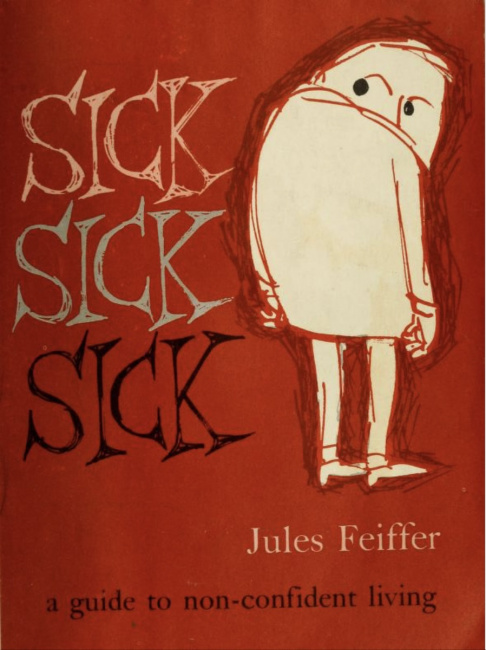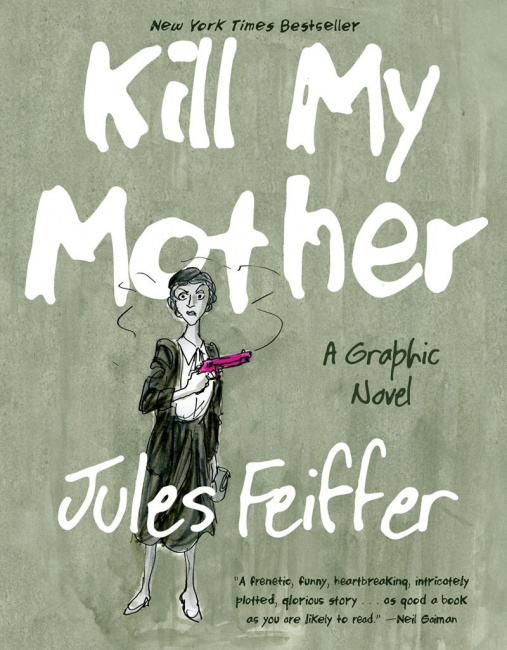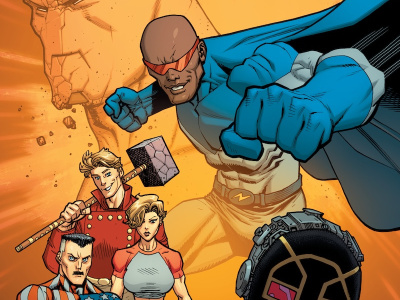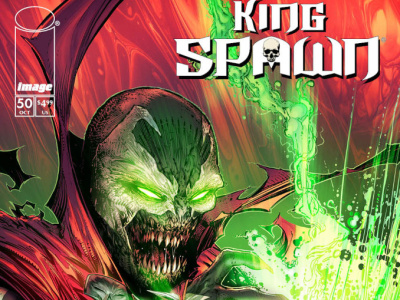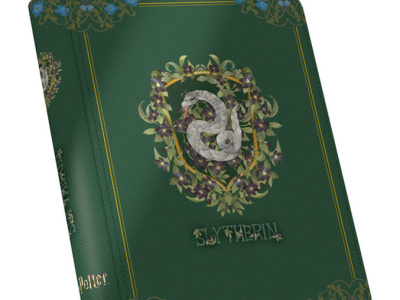Cartoonist Jules Feiffer, a sharp-eyed chronicler of the absurdities of modern life, died on January 17, 2025, just a few days shy of his 96th birthday.
Feiffer was born 1929 in the Bronx, the son of a salesman and a fashion designer. He began drawing at an early age, encouraged by his mother, and took classes at the Art Students League in New York. In 1946, when he was 16, he started working at Will Eisner’s studio, doing small jobs at first and eventually becoming an assistant to Eisner on The Spirit. Eisner had recently returned to the series, which had been produced by his assistants after he was drafted in 1942. “I said to him one day, ‘You were better in 1942. Why don’t you write like you did then?’” Feiffer reminisced during a New York Comic Con panel in 2010. “Instead of firing me, he said ‘If you can do better, why don't you write one?’ So I did and he read it and from then on I wrote for him.”
After 10 years at Eisner’s studio, Feiffer struck out on his own. He created several graphic novellas, a format that didn’t really exist at the time, and brought them around to publishers. “Every editor in New York liked everything I did, but they said, ‘We can't publish you because there's no market for this and nobody knows who you are,’” Feiffer recalled during a 2014 panel at SPX. “So I understood that my job was to get famous before I got published. On all their desks there was this new newspaper, The Village Voice. I thought, if I get in that paper, they'll think I'm famous and I'll get a book published. So that's what I did. And I was right.”
The Voice was still a new paper in 1956, and after Feiffer did some unpaid work, they hired him as a staff cartoonist. His weekly strip, originally titled Sick, Sick, Sick, featured loosely drawn characters musing about some aspect of their lives across a series of empty, borderless panels. The first collection, Sick, Sick, Sick: A Guide to Non-Confident Living, was published in 1958 and brought Feiffer’s dry wit and distinctive art to the attention of magazine editors, launching his career as a successful cartoonist for the New Yorker, Playboy, and The Nation; his comics were also syndicated to newspapers nationwide, and his Village Voice strip, later retitled Feiffer, ran in the paper until 1997.
While Feiffer was best known for his standalone cartoons, he worked in other formats as well. In 1979 Alfred A. Knopf published his early graphic novel Tantrum, and over the years, Feiffer wrote novels, illustrated children’s books (including Norman Juster’s The Phantom Tollbooth), and wrote and illustrated his own picture books. He also wrote a memoir, Backing Into Forward (see “Jules Feiffer’s Autobiography”). In 2014, when he was 85, Liveright published his graphic novel Kill My Mother. The book was nominated for an Eisner Award, and he followed it up with Cousin Joseph (2016) and The Ghost Script (2018). In September 2024, Michael di Capua Books published Feiffer’s first graphic novel for children, Amazing Grapes.
Feiffer won the 1986 Pulitzer Prize for editorial cartooning and in 2004 he was inducted into the Comic Book Hall of Fame and received the National Cartoonist’s Society’s Milton Caniff Lifetime Achievement Award.
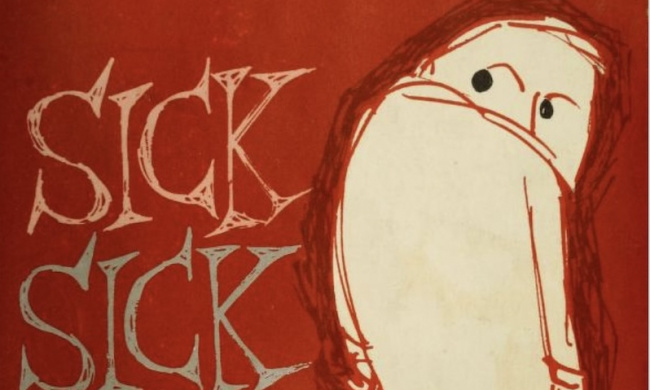
Sharp-Eyed Chronicler of Modern Mores
Posted by Brigid Alverson on January 21, 2025 @ 11:08 pm CT
MORE COMICS
Remastered Originals Followed by All-New Series
July 29, 2025
Capes will return with remastered versions of the long-out-of-print originals, followed by new stories in the same universe.
From Image Comics
July 29, 2025
Check out the covers for King Spawn #50, coming this October from Image Comics.
MORE NEWS
Featuring the Magical Houses of the Series
July 29, 2025
heo Group unveiled new Harry Potter 4-Pocket Zipfolios.
'Salamence ex & Reshiram ex'
July 29, 2025
The Pokemon Company International will release Salamence ex & Reshiram ex Premium Collection, for Pokemon TCG, into retail.



